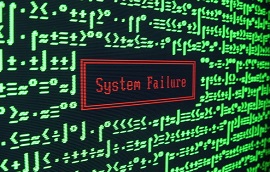 Regardless of how good your AC system is, at some point, you will experience faults and problems. Therefore, it is vital that you keep an eye out for signs that your system is not operating as it should. Many common problems could be easily avoided with proper maintenance. Even if this type of problem does develop, often it is possible that you can sort it out yourself, without needing to call in a professional.
Regardless of how good your AC system is, at some point, you will experience faults and problems. Therefore, it is vital that you keep an eye out for signs that your system is not operating as it should. Many common problems could be easily avoided with proper maintenance. Even if this type of problem does develop, often it is possible that you can sort it out yourself, without needing to call in a professional.
Dirty Condenser Coil:
The condenser coils inside your air conditioner need to be free of debris to and clean, but they are often neglected. Unfortunately, when a condenser coil becomes dirty, it can lead to a lot of air conditioner issues. They are needed to draw heat from the home, and when they are clogged with debris, they cannot perform this function adequately, compromising efficiency and leading to a system failure. Your condenser coils are located in the outdoor unit of your air conditioning system. You can gain access to clean them by unscrewing the mesh protector, but be sure to use a soft brush and don’t be tempted to use a garden hose. Putting water into the unit can lead to mold developing, which causes, even more, problems.
Air Filters Needing Replacement:
Many homeowners overlook the important role the air filter plays in an air conditioning system. They are actually a vital component, protecting the system from dirt and debris. Unfortunately, the filter cannot perform this task indefinitely, as they will accumulate debris over time and no longer be able to function. Most manufacturers recommend that filters are cleaned and replaced regularly. You should check your filters to see if they are in need of cleaning. If you have pets, or there are smokers in the house, you will need to change your filters more frequently. Clogged filters compromise airflow through the system, forcing the system to work harder and causing uneven temperatures. Some systems even have a safety feature that triggers if the airflow is compromised. This requires that you clean the filter and reset the system before the air conditioning can be turned back on.
Environmental Damage:
Not all damage is preventable and sometimes environmental damage can have detrimental effects on your AC. In the winter debris such as leaves, fallen branches and, in colder temperatures, snow and ice can enter into your outdoor unit, causing damage. This can be prevented by covering your unit in the winter months. Unfortunately, environmental damage is not limited to winter. In summer thunderstorms can cause a number of electrical issues. This can be avoided by switching off your system while the storm is overhead.
While regular servicing can significantly reduce the risk of a breakdown, it is still important to keep an eye on your system. Listen for any odd noises, as rattles or squeaks can indicate a component failure. If your system is not cooling your home properly, it is worth having it checked by an HVAC professional, as there may be an underlying issue that is compromising efficiency and performance. This could save you money and stress in the long term, ensuring that you remain comfortable in even the hottest summer temperatures.
